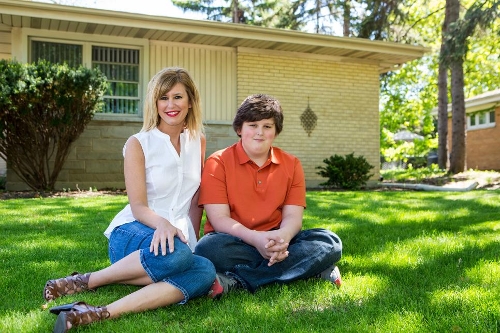Contract of Purchase and Sale –




Disclaimer:...

In...

Disclaimer:...


https://youtu.be/qylcViQZsKo?si=Z7HP-FQAMKDR5vXR
In collaboration with the Canadian Bar Association BC Branch, BCREA has created a newly updated video to help consumers better understand what’s involved in the preparation of the Contract of Purchase and Sale (CPS) – Residential for a particular property.
REALTORS® may want to show this video to their clients when discussing the CPS – Residential or at any point if there are questions about what’s involved in the purchase and sale of a property.
Better understand the process of preparing a CPS – Residential.
Learn the most common terms of a real estate transaction.
Discover what familiar components are involved for buyers, sellers, and their REALTORS® when working on a CPS – Residential and what areas allow for flexibility to insert unique terms.
REALTORS® always look out for their client’s best interests, and clients are better protected when they understand their rights and obligations. This video reflects REALTORS®’ commitment to protecting them. Don't forget to check our Consumer Videos Playlist here for more information on how to navigate and understand standard forms, contracts, and more.
Info source…. https://www.bcrea.bc.ca/resources-tips/new-video-explains-the-contract-of-purchase-and-sale-residential-form-to-consumers/
Email: bcrea@bcrea.bc.ca
Please be aware that the information shared is for informational purposes only.

Disclaimer: The information provided in this blog post is for educational and informational purposes only. It does not constitute financial, investment, or legal advice. Before making any investment decisions, readers are encouraged to consult with a qualified financial advisor or real estate professional who can provide personalized guidance based on their individual circumstances.
In the world of entrepreneurship and wealth creation, few ventures offer the potential for substantial profits quite like real estate investment. Buying real estate isn't just about acquiring properties; it's a strategic business endeavor with the potential to generate significant returns when approached with knowledge, foresight, and diligence. In this blog post, we'll delve into why buying real estate is a profitable business and explore key strategies for success in this dynamic industry.
Capital Appreciation: One of the primary drivers of profitability in real estate investment is capital appreciation. Historically, real estate has proven to be a reliable asset class that tends to appreciate in value over time. By purchasing properties in strategic locations with strong growth potential, investors can capitalize on market appreciation to generate substantial returns on their initial investment. Whether it's residential properties in burgeoning neighborhoods or commercial spaces in high-demand areas, buying real estate with an eye towards future appreciation can yield significant profits in the long run.
Rental Income: Another avenue for profitability in real estate investment is rental income. Buying properties to rent out to tenants can provide investors with a steady stream of cash flow that contributes to overall profitability. Whether it's residential rentals, commercial leases, or vacation properties, rental income can help offset expenses, generate positive cash flow, and enhance overall returns on investment. By setting competitive rental rates, maintaining high occupancy levels, and implementing efficient property management practices, investors can maximize the profitability of their rental properties over time.
Value-Adding Opportunities: Beyond passive income and capital appreciation, savvy real estate investors capitalize on value-adding opportunities to enhance profitability. This can involve renovating properties to increase their market value, repositioning underperforming assets to attract higher-paying tenants, or optimizing property management practices to improve operational efficiency. By identifying and executing value-adding strategies, investors can unlock hidden potential in their properties and significantly boost their overall returns on investment.
Tax Benefits: Real estate investment offers a range of tax benefits that can further enhance profitability. Investors may benefit from deductions such as mortgage interest, property taxes, depreciation, and operating expenses, reducing their taxable income and increasing cash flow. Additionally, strategies such as 1031 exchanges allow investors to defer capital gains taxes when reinvesting proceeds from the sale of one property into another, enabling them to compound wealth more efficiently over time. By leveraging these tax advantages effectively, investors can maximize their after-tax returns and enhance overall profitability.
Portfolio Diversification: Incorporating real estate into an investment portfolio can enhance diversification and reduce overall portfolio risk. Real estate has a low correlation with other asset classes such as stocks and bonds, meaning its performance may not move in tandem with the broader market. As a result, allocating a portion of your investment capital to real estate can help stabilize portfolio returns and mitigate volatility, especially during periods of market turbulence. Diversification through real estate can also provide a hedge against inflation and geopolitical risks, further bolstering overall portfolio profitability.
Long-Term Wealth Building: While real estate investment can yield significant short-term profits, it's essential to recognize that building wealth through real estate is often a long-term endeavor. By adopting a patient and strategic approach, investors can harness the power of compounding growth, capital appreciation, and rental income to accumulate wealth steadily over time. Whether it's building a portfolio of income-producing properties, engaging in development projects, or exploring niche real estate markets, the path to long-term profitability in real estate is paved with careful planning, disciplined execution, and a commitment to continuous learning and adaptation.
In conclusion, buying real estate is a profitable business with the potential to generate significant returns for savvy investors. Whether it's capital appreciation, rental income, value-adding opportunities, tax benefits, portfolio diversification, or long-term wealth building, real estate offers a myriad of avenues for profitability and wealth accumulation. By understanding the dynamics of the real estate market, conducting thorough due diligence, and executing sound investment strategies, entrepreneurs can unlock the full potential of real estate investment and embark on a journey towards financial freedom, prosperity, and success.
#RealEstate #HomeSelling #PropertyListing #ExpertAdvice #bcrealestatesale #homeforsale #surrey #abbotsford #fraservalley #realestategoals #firsttimehomebuyer #realtor #property #gurinderdhaliwal
For more information on buying and selling real estate in British Columbia, visit BCRealEstateSale.com - your trusted source for expert advice and listings in the BC real estate market.

Introduction: In recent years, Canada has witnessed a surge in interest from foreign investors eyeing its lucrative real estate market. To manage this influx and address concerns about housing affordability, several provinces have implemented a Foreign Buyer Tax. In this blog post, we'll delve into what the Foreign Buyer Tax entails, which provinces have implemented it, and how it impacts both foreign buyers and the Canadian housing market, providing valuable insights for real estate investors.
What is the Foreign Buyer Tax? The Foreign Buyer Tax is a tax levied on foreign nationals or foreign corporations purchasing residential properties in certain Canadian provinces. It aims to deter foreign speculation in the real estate market and mitigate the impact of foreign investment on housing affordability for Canadian residents, making it a crucial consideration for investors looking to enter the Canadian real estate market.
Provinces with Foreign Buyer Tax: As of the time of writing, several provinces in Canada have implemented a Foreign Buyer Tax, including British Columbia, Ontario, and Manitoba. Understanding the specific tax regulations in each province is essential for investors looking to navigate the Canadian real estate landscape effectively.
Key Features of the Foreign Buyer Tax:
Rate: The tax rate varies by province but typically ranges from 15% to 20% of the property's purchase price, significantly impacting the overall investment cost.
Applicability: Foreign Buyer Tax applies to residential properties, including detached homes, condos, and townhouses, influencing investment decisions across various segments of the real estate market.
Exemptions: Some provinces offer exemptions or rebates for certain categories of buyers, such as those with work permits or permanent residency status, providing opportunities for strategic investment planning.
Impact on Foreign Buyers and the Canadian Housing Market:
Foreign buyers must factor in the additional tax when purchasing residential properties in Canada, potentially influencing their investment decisions and altering market dynamics.
The tax aims to level the playing field for Canadian residents by reducing competition from foreign investors, impacting housing affordability and market equilibrium.
Challenges and Considerations:
Enforcement of the Foreign Buyer Tax and identification of foreign buyers can pose logistical challenges for government agencies, requiring robust monitoring and regulatory frameworks.
Continuous monitoring and adjustments to the tax policy may be necessary to ensure its effectiveness in achieving housing affordability goals while fostering sustainable economic growth.
Conclusion: The implementation of the Foreign Buyer Tax in Canada underscores policymakers' efforts to strike a balance between promoting housing affordability for Canadian residents and attracting foreign investment. As real estate investors navigate the evolving regulatory landscape, understanding the implications of the Foreign Buyer Tax is crucial for making informed investment decisions in the Canadian real estate market, optimizing opportunities for growth and profitability.
Disclaimer: The information provided in this blog post is for general informational purposes only and should not be construed as legal or financial advice. Laws and regulations regarding the Foreign Buyer Tax may vary by province and are subject to change. Readers are encouraged to seek professional advice from qualified experts for personalized guidance tailored to their specific circumstances, ensuring compliance with regulatory requirements and maximizing investment potential in the Canadian real estate market.
Looking for expert advice Visit BCRealEstateSale.com for comprehensive resources and personalized assistance from experienced real estate professionals. Whether you're a first-time homebuyer, seller, or experienced investor, we're here to help you make informed decisions and achieve your goals. Explore our website today for valuable insights, property listings, and professional services to streamline your real estate journey in British Columbia.

Disclaimer:
The information provided about the First-Time Home Buyer Property Transfer Tax (PTT) exemption in British Columbia is for general informational purposes only. Laws and regulations may change, and individual circumstances vary. Seek professional advice for personalized guidance.
Introduction: Buying your first home is an exciting milestone, but it also comes with financial considerations. In British Columbia, one such consideration is the Property Transfer Tax (PTT). However, first-time homebuyers in B.C. have the opportunity to benefit from an exemption or reduction of this tax. In this blog post, we'll explore everything you need to know about the First-Time Home Buyer PTT exemption, from eligibility criteria to the application process.
Understanding Property Transfer Tax (PTT): Before diving into the exemption, let's briefly understand what the Property Transfer Tax is. PTT is a tax levied by the provincial government on property transactions. It's calculated based on the fair market value of the property at the time of registration.
Eligibility Criteria for First-Time Home Buyers: To qualify for the First-Time Home Buyer PTT exemption, you must meet certain eligibility criteria:
You must be a Canadian citizen or permanent resident.
You must have lived in B.C. for at least 12 consecutive months immediately before the date of registration, or have filed at least 2 income tax returns as a B.C. resident in the last 6 years.
You must not have owned a principal residence anywhere in the world at any time.
The property you're purchasing must be used as your principal residence.
Property Value Limits: The exemption applies to properties with a fair market value of up to $500,000. For properties valued between $500,000 and $525,000, a partial exemption is available. No exemption is available for properties valued over $525,000.
the property must:
Only be used as your principal residence
Have a fair market value of $835,000 or less (effective April 1, 2024)
Be 0.5 hectares (1.24 acres) or smaller, and
Contain only residential improvements
If all of the above requirements are met, then the purchaser will be exempt from property transfer tax on the first $500,000 of the purchase price of the property.
Note: If you purchase the home before April 1, 2024, to receive the full exemption, the fair market value must be $500,000 or less.
Calculating the Tax: The Property Transfer Tax is calculated as follows:
1% on the first $200,000 of the property's fair market value.
2% on the portion of the fair market value between $200,000 and $2,000,000.
3% on the portion of the fair market value greater than $2,000,000.
Application Process: Applying for the First-Time Home Buyer PTT exemption is typically done at the time of registration of the property transfer. Your notary or lawyer will assist you with the necessary forms and documentation. Ensure you have all required documents, including proof of citizenship or permanent residency, proof of B.C. residency, and a statement confirming your first-time homebuyer status.
Additional Considerations:
Keep copies of all documentation for your records.
If there are multiple buyers, all must meet the first-time homebuyer criteria to qualify for the exemption.
Conclusion: Navigating the property market as a first-time homebuyer can be daunting, but the First-Time Home Buyer PTT exemption in B.C. provides a valuable opportunity for savings. By understanding the eligibility criteria and application process outlined in this guide, you can make the most of this exemption and take a significant step towards owning your dream home.
#RealEstate #HomeSelling #PropertyListing #ExpertAdvice #bcrealestatesale #homeforsale #surrey #abbotsford #fraservalley #realestategoals #firsttimehomebuyer #realtor #property #gurinderdhaliwal
Remember, while this blog provides valuable information, it's essential to seek personalized advice from real estate professionals, notaries, or lawyers for specific guidance tailored to your situation. Happy house hunting!
Looking for expert advice Visit BCRealEstateSale.com for comprehensive resources and personalized assistance from experienced real estate professionals. Whether you're a first-time homebuyer, seller, or experienced investor, we're here to help you make informed decisions and achieve your goals. Explore our website today for valuable insights, property listings, and professional services to streamline your real estate journey in British Columbia.

Disclaimer
Starting January 1, 2025, B.C. will introduce a home flipping tax. As a real estate professional, it’s important to understand the details of this tax so you can effectively advise your clients, especially if they plan to sell a property shortly after purchasing it. Here’s a comprehensive guide to help you navigate this new tax and explain it to your clients.
Key Points of the Home Flipping Tax
The home flipping tax applies to properties sold within two years of their purchase date. The tax is designed to discourage short-term real estate speculation and flipping, aiming to stabilize the housing market. Here are several scenarios to illustrate how the tax will be applied:
1,Property Purchased in March 2024 and Sold in December 2024
Outcome: No tax is payable.
Reason: The sale occurs before the tax comes into effect on January 1, 2025.
2,Property Purchased in March 2024 and Sold in February 2025
Outcome: The tax is payable.
Details: Since the sale takes place after the tax is effective, it falls within the two-year window. The amount of tax depends on the profit made from the sale and how soon after the purchase the home is sold. Generally, the faster the property is flipped, the higher the tax rate.
3,Property Purchased in March 2024 and Sold in April 2026
Outcome: No tax is payable.
Reason: The sale occurs outside the two-year period, which means the tax does not apply.
4,Pre-sale Property Purchased in March 2024, Moving in December 2026, and Contract Assigned Before March 2026
Outcome: The tax is payable.
Details: Even though the client hasn’t moved in yet, assigning the contract to another buyer before March 2026 falls within the two-year window from the original purchase date, triggering the tax.
Advising Your Clients
Informing Clients
You must inform your clients about this new tax if they are considering selling a recently purchased home. Make them aware that if they sell within two years of buying, they could be subject to this tax.
Staying Updated
Advise your clients to visit the B.C. home flipping tax webpage for the most current information and updates. This page will provide detailed guidance, examples, and any changes to the tax policy that may occur.
Professional Advice
For specific transactions and detailed questions about the application of the tax, it’s recommended that your clients seek independent professional advice. Tax laws can be complex, and professional advice will help ensure they understand the implications and any potential exemptions that might apply to their situation.
https://www2.gov.bc.ca/gov/content/taxes/income-taxes/bc-home-flipping-tax for updated information
Data source BCFSA website
https://www.bcfsa.ca/about-us/news/blog/home-flipping-tax-and-what-it-means-you
Looking for expert advice Visit BCRealEstateSale.com for comprehensive resources and personalized assistance from experienced real estate professionals. Whether you're a first-time homebuyer, seller, or experienced investor, we're here to help you make informed decisions and achieve your goals. Explore our website today for valuable insights, property listings, and professional services to streamline your real estate journey in British Columbia.

SURREY, BC – A combination of unseasonably high demand and declining supply reinforced Fraser Valley’s real estate market in November. The Fraser Valley Real Estate Board processed 1,405 sales of all property types on its Multiple Listing Service® (MLS®) in November, an 11.7 per cent decrease compared to sales in October 2019, and a 36.7 per cent increase compared to the 1,028 sales in November of last year. Darin Germyn, President of the Board, says, “Some listings are seeing a lot of activity depending on location and property type. REALTORS® are reporting more showings, higher traffic at open houses and even some multiple offer situations, which is atypical for the time of year.
“For our region, a balanced market is when 12 to 20 per cent of active inventory is selling. In November, 33 per cent of our supply of townhomes sold, as did 29 per cent of Fraser Valley condos; indicating that the supply of attached properties isn’t keeping up with demand.”
There were 6,733 active listings available in the Fraser Valley at the end of November, a decrease of 8.5 per cent compared to November of last year and a decrease of 9 per cent compared to October 2019. The Board received 1,877 new listings in November, a 21.2 per cent decrease compared to October 2019’s intake of 2,383 new listings and a 9.6 per cent decrease compared to November of last year. Germyn adds, “Buyers are seeing the effect that tighter supply has on prices. In early summer, the combined residential benchmark price was down 6 per cent compared to the same period last year; in November it was down by 3 per cent.” MLS® HPI Benchmark Price Activity Single Family Detached: At $952,200, the Benchmark price for a single-family detached home in the Fraser Valley remained unchanged compared to October 2019 and decreased 2.5 per cent compared to November 2018. Townhomes: At $514,700 the Benchmark price for a townhome in the Fraser Valley in the Fraser Valley decreased 0.3 per cent compared to October 2019 and decreased 3.4 per cent compared to November 2018. Apartments: At $404,500, the Benchmark price for apartments/condos in the Fraser Valley decreased 0.1 per cent compared to October 2019 and decreased 4.3 per cent compared to November 2018. For the Fraser Valley region, the average number of days to sell an apartment in November was 40, and 38 for townhomes. Single family detached homes remained on the market for an average of 48 days before selling. Find the November Statistics Package here.
https://www.fvreb.bc.ca/statistics/unusual-end-of-year-demand-for-fraser-valley-real-estate/

Discover Your Dream Townhouse: Your Guide to Finding the Perfect Home"
Are you ready to find your dream townhouse? Whether you're a first-time buyer, growing family, or seasoned investor, townhouses offer a unique blend of convenience, affordability, and community living. With their spacious layouts, modern amenities, and low-maintenance lifestyle, townhouses are an excellent option for those seeking the comfort of a single-family home without the hassle of exterior maintenance.
Why Choose a Townhouse?
Townhouses offer the perfect balance of privacy and community living. With their shared walls and common areas, townhouse communities foster a sense of camaraderie among residents while still providing the privacy and autonomy of a standalone dwelling. Plus, many townhouse developments feature amenities such as pools, gyms, and recreational facilities, adding to the appeal for homeowners seeking a well-rounded lifestyle.
Finding Your Perfect Townhouse
Finding your perfect townhouse is easier than ever with the intuitive search tools available on this page. Whether you're looking for a cozy starter home or a spacious family-friendly residence, you'll find a wide range of options to suit your needs and preferences. Use the map search tool to explore current listings for townhouses for sale in your desired area, and filter your search by price, size, amenities, and more to narrow down your options.
Why Choose Gurinder Dhaliwal?
With a deep knowledge of the real estate market, Gurinder Dhaliwal is your trusted partner in finding the perfect townhouse for sale. Whether you need assistance navigating the homebuying process or expert advice on local market trends, Gurinder Dhaliwal provides personalized assistance and comprehensive resources to help you achieve your homeownership goals. With a commitment to excellence and customer satisfaction, Gurinder Dhaliwal is dedicated to making your real estate journey a seamless and rewarding experience.
Explore Your Options Today
Ready to find your dream townhouse? Visit bcrealestatesale.com to access personalized assistance and comprehensive resources tailored to your needs. Whether you're a first-time buyer, growing family, or seasoned investor, our team is here to help you navigate the real estate market with confidence. Explore our site now to discover valuable insights, explore current listings, and take the first step towards finding your perfect townhouse.
Disclaimer: The information provided in this blog is for informational purposes only and should not be construed as legal, financial, or professional advice. It is recommended to consult with qualified professionals for specific guidance related to your individual circumstances.
#RealEstate #HomeSelling #PropertyListing #ExpertAdvice #bcrealestatesale #homeforsale #surrey #abbotsford #fraservalley #realestategoals #firsttimehomebuyer #realtor #property #gurinderdhaliwal
Fraser Valley market stats.
These stats will give you an overview to help you to figure out your property price.
click at bottom link to go on live stats.
Thank You.
call for more info -778-908-2409
Gurinder Dhaliwal

Spring time is known to be the busiest time of year in the real estate industry. As the temperature rises not only do we see blossoming flowers and the signs of life returning to nature, we also see a dramatic increase in the number of homes hitting the market, as well as a larger number of potential home buyers looking to find their perfect match. Tips for selling a home is often covered, but if you're a buyer, there are a few things you may want to do for success this spring.
1. Hire a Real Estate Professional to Be Your Tour Guide, and Choose Carefully!
It has never been more important to hire a real estate agent than in today’s market. It is crucial that you hire someone who is experienced in many types of transactions. You deserve to have a professional representing your best interests throughout the entire buying process. A buyer’s agent will help you with your home search, required contractual paperwork, negotiations, inspections, and any other concerns that may come up. Remember, it will cost you nothing to hire a buyer’s agent; the seller of your new home will pay their commission, so you have nothing to lose.
2. Understand Your Financial Profile and Get Pre-Approved For a Home Mortgage
If you’re looking to buy a house you’ve probably prepared a budget in order to determine how much you are comfortable spending on a new place. And while that is a good place to start, the reality is that the world of home financing has changed dramatically in recent years. Obtaining a home mortgage is harder today than it has been a very long time, which means you may not be qualified to borrow as much money as you think.
3. Prioritize Your Needs and Wants
Families with children want to live near good school systems and they tend to want bigger yards and outdoor play areas. People who are devoted to their careers will pay more attention to the ease of their commute. Single people tend to seek out places that offer a certain level of entertainment and proximity to other unmarried residents. Likewise, retirees are concerned about the vicinity of local hospitals and perhaps, recreational activities like golf. As a home buyer you should have a solid understanding of your own needs. Make a checklist and prioritize the items on that list; what do you need vs. what do you want?
#RealEstate #HomeSelling #PropertyListing #ExpertAdvice #bcrealestatesale #homeforsale #surrey #abbotsford #fraservalley #realestategoals #firsttimehomebuyer #realtor #property #gurinderdhaliwal

Finding the perfect real estate agent requires some homework and asking the right questions. The agent you choose will handle almost every maneuver in one of the biggest financial investments of your life, so it's essential to make an informed decision. Experience, interests, and expertise vary from agent to agent, and the right questions will help align your needs with the abilities of a suitable representative. Here are eight key questions to guide you in finding the right agent:
Experience is vital, especially in real estate. If an agent hasn't been connected to the local residential market for several years, they might be out of touch with its cyclical nature. An experienced agent will have a keen eye on market trends and can anticipate changes, potentially saving you thousands of dollars in the long run.
A solid marketing plan is crucial for selling your home quickly and at the best price. Ask the agent to lay out their marketing strategy in detail. How much do they allocate for advertising? What types of media do they use? An effective agent should employ innovative marketing techniques that go beyond traditional methods. Creativity and a willingness to think outside the box are essential in today's competitive real estate market.
Support throughout the buying or selling process is crucial. An agent should have a unique system to cater to your needs and goals at each step. Inquire about the availability of specialists at different stages and ensure the agent is always on hand to answer questions. The expertise of specialists can be invaluable during various phases of the process.
The agent should provide a detailed list of their sales in your area and comparable sales. This information gives you a clear idea of what to expect from the agent and insights into the current market conditions.
Every buyer needs a tailored financing strategy. While lenders provide information and guidance, a knowledgeable agent can offer personalized suggestions based on your financial background and needs. Their insight can be instrumental in developing a solid financing plan.
You can contact the Real Estate Board for information on an agent's selling record, including whether their performance is above or below the board average. This data helps you gauge how much you might expect your home to sell for and how long it might take, giving you a performance benchmark for the agent.
Effective negotiation tactics are key to securing the best price for your home. Your agent should articulate their negotiation philosophy clearly, demonstrating a commitment to achieving the best outcome for you.
Do your homework! Contacting past clients can provide valuable insights into the agent's performance and what you can expect. Their experiences can help you make a more informed decision.
#RealEstate #HomeSelling #PropertyListing #ExpertAdvice #bcrealestatesale #homeforsale #surrey #abbotsford #fraservalley #realestategoals #firsttimehomebuyer #realtor #property #gurinderdhaliwal
Choosing the right real estate agent can significantly impact your financial investment. By asking these eight questions, you can ensure that you select an agent who is experienced, knowledgeable, and a good fit for your specific needs. Doing a little extra homework upfront can save you time, money, and stress in the long run. For more tips and insights on finding the right real estate agent, visit https://bcrealestatesale.com/ Happy house hunting!
Disclaimer: The information provided in this blog is for general informational purposes only and should not be construed as professional advice. The questions and suggestions mentioned are intended to guide you in selecting a real estate agent, but individual needs and circumstances may vary. Always conduct your own research and consult with a qualified real estate professional before making any decisions.

It’s easy to overlook the wear and tear that happens to your house over the years, but when you start thinking about selling, the state of your home becomes much clearer. You know there are things that need to be fixed and cleaned up, but with limited money and time, what should you prioritize?
Articles like this provide general advice on what works for most people. Ideally, you will have a real estate agent who can look at your home and give you targeted advice, but even if you are working with a Realtor, this information can help you start a conversation about possible home repairs.
Taking care of the most important things to repair before selling a house can put more money in your pocket! This is one of the primary reasons real estate agents recommend addressing certain issues before listing your home.
Paint is one of the cheapest, easiest ways to update your home before listing it. You don’t need to be a professional painter to make this work for you. Watch a few videos online, pick your colors, and start painting!
Lighter and neutral colors are preferred because they tend to appeal to most people. You don’t have to paint every room, just those that obviously need it. Rooms with dark, chipped, or dirty paint are the ones that will benefit the most.
The exterior is the first thing buyers see, so you want it to look good. Replace missing fence boards, add sod if the yard is in poor condition, and clean up any junk that may have accumulated outside. Make sure the grass is mowed and weeds are taken care of before someone views the home. Plant some flowers to add color and make the place feel homier. Here are some low-cost exterior home improvements worth doing:
Remove moss growth on the roof.
Replace missing shingles.
Fix problems with the siding.
Kitchens are essential to home sales. Everyone wants a spacious kitchen with new appliances where they can cook and entertain. While a complete kitchen renovation might not be financially viable, minor repairs can make your kitchen more inviting. Consider these updates:
Paint as necessary.
Install new lighting fixtures.
Replace countertops with more appealing materials (granite or marble are not required, but solid surface materials can be a good investment).
Ensure all appliances are in working order. If the oven, dishwasher, or range are in poor condition, replacing them might be necessary to appeal to buyers.
A clean bathroom where everything works as it should is a necessity. Fix any running toilets or leaky faucets, replace the toilet seat, and clean or replace grout. Missing tiles should also be replaced. If the bathroom has old wallpaper or dingy surfaces, a new paint job is recommended. The brighter and cleaner you can make the room, the better.
Good lighting can make even the smallest home seem open and inviting. Consider updating light fixtures and maximizing natural light by using light-colored curtains. Analyze your current space and see if you can find ways to improve the lighting.
Ensure everything in your home works as it should, from doorknobs and locks to the garage door. All functional aspects of the home must be in good working order to fetch the best price.
A pre-sale home inspection can help you identify issues and fix them before trying to sell your home. This can prevent problems that could end a home sale. Even if you are a professional, a home inspection will be required before a lending company will loan a buyer money to purchase your home. Identifying and fixing problems now can save you from dealing with them later.
Thinking of selling your home? I have a passion for Real Estate and love to share my marketing expertise!
#RealEstate #HomeSelling #PropertyListing #ExpertAdvice #bcrealestatesale #homeforsale #surrey #abbotsford #frasevalley #realestategoals #firsttimehomebuyer #realtor #property #gurinderdhaliwal
For expert advice, visit BCRealEstateSale.com for comprehensive resources and personalized assistance from experienced real estate professionals. Whether you're a first-time homebuyer, seller, or experienced investor, we’re here to help you make informed decisions and achieve your goals. Explore our website today for valuable insights, property listings, and professional services to streamline your real estate journey in British Columbia.
Disclaimer: The information provided in this blog is for general informational purposes only and should not be construed as professional advice. The suggestions mentioned are intended to guide you in preparing your home for sale, but individual needs and circumstances may vary. Always conduct your own research and consult with a qualified real estate professional before making any decisions.

The Best Asking Price for your Home Gurinder Dhaliwal realtor
setting a realistic price for your home that reflects current market values will help sell your home quickly and for top dollar. When you price your home properly, you increase the chances that the offer you receive will nearly match your asking price, and that there will be competing offers—which may net you even more in the long run.
Your property has the best chance of selling within its first seven weeks on the market. And, studies indicate that the longer a property stays on the market, the less it will ultimately sell for. A property priced 10 % more than its market value is significantly less likely to sell within this window than a property priced close to its actual market value. About three-quarters of homes on the market today are 5-10 % overpriced. Sellers will usually over-price their homes by this margin if, either, they firmly believe the home is worth more than what the market indicates, or if they want to leave room for negotiation. Either way, if you choose to over-price your home by this amount, you run the risk of increasing the amount of time your home spends on the market, and decreasing the amount of money you’ll ultimately receive.
At the other end of the selling spectrum are houses that are priced below a fair market value. Under-pricing often occurs when the owner is interested in a quick sell. You can bargain on these homes attracting multiple offers and ultimately selling quickly at—or above—the asking price.
The knowledge and skills of an experienced Realtor will be invaluable when determining an appropriate asking price. It is the job of your Realtor to know the current market and market trends inside and out, to be closely connected to the real estate market at large, and to be aware of other properties currently for sale in your particular area. Based on this range of connections and knowledge, your Realtor should counsel you on how to price your home properly in order to attract the highest price possible, in the shortest period of time.
Before approaching this process, you should first do some homework yourself. You’ll need to know the workings of the current market before you even begin to think about setting an asking price. The market will always influence a property’s value, regardless of the state of a home, or its desirability. Here are the types of market conditions and how they may affect you:
1. Seller’s Market:
A Seller’s market is considered a “hot” market. This type of market is created when demand is greater than supply—that is, when the number of Buyers exceeds the number of homes on the market. As a result, these homes usually sell very quickly, and there are often multiple offers. Many homes will sell above the asking price.
2. Buyer’s Market:
The buyer’s market is a slower market. This type of market occurs when supply is greater than demand, the number of homes exceeding the number of Buyers. Properties are more likely to stay on the market for a longer period of time. Fewer offers will come in and with less frequency. Prices may even decline during this period. Buyers will have more selection and flexibility in terms of negotiating toward a lower price. Even if your initial offered price is too low, Sellers will be more likely to come back with a counter-offer.
3. Balanced Market:
In a balanced market, supply equals demand, and the number of homes on the market is roughly equal to the number of Buyers. When a market is balanced there aren’t any concrete rules guiding whether a Buyer should make an offer at the higher end of his/her range, or the lower end. Prices will be stable, and homes will sell within a reasonable period of time. Buyers will have a decent number of homes to choose from, so Sellers may encounter some competition for offers on their homes, or none at all.
Remember, a Realtor is trained to provide clients with this information about the market, helping you make the most informed decision possible. The right Realtor will guide you through the ups and downs of the market and keep you up-to-date with the types of changes you might expect.
Evaluate your house in the other main areas that affect market value:
1. Location:
The proximity of your home to amenities, such as schools, parks, public transportation, and stores will affect its status on the market. Also, the quality of neighborhood planning and future plans for development and zoning will influence a home’s current market value, as well as the ways in which this value might change.
2. Property:
The age, size, layout, style, and quality of construction of your house will all affect the property’s market value, as well as the size, shape, seclusion and landscaping of the yard.
3. Condition of the Home:
This includes the general condition of your home’s main systems, such as the furnace, central air, electrical system, etc., as well as the appearance and condition of the fixtures, the floor plan of the house, and its first appearance.
Ask your Realtor to prepare you a general market analysis of your neighborhood, so you can determine a range of value for your property. A market analysis will provide you with a market overview and give you a glimpse at what other similar properties have been selling for in the area.
5. Market Conditions/ Economy: The market value of your home is additionally affected by the number of homes currently on the market, the number of people looking to buy property, current mortgage rates, and the condition of the national and local economy.
#RealEstate #HomeSelling #PropertyListing #ExpertAdvice #bcrealestatesale #homeforsale #surrey #abbotsford #fraservalley #realestategoals #firsttimehomebuyer #realtor #property #gurinderdhaliwal
Looking for expert advice Visit BCRealEstateSale.com for comprehensive resources and personalized assistance from experienced real estate professionals. Whether you're a first-time homebuyer, seller, or experienced investor, we're here to help you make informed decisions and achieve your goals. Explore our website today for valuable insights, property listings, and professional services to streamline your real estate journey in British Columbia.


After putting in a huge amount of time and effort to get your home ready to sell, your hard work is finally going to pay off. Your home is on the market, and you’re ready to begin showing it to potential buyers. Your house should always be at-the-ready for a tour, as agents may bring clients by with very little notice. If they catch you unprepared and you aren’t able to show the house on the spot, you could miss out on a sale. Concentrate on the following areas to ensure your home is ready to show:
Homebuyers may feel like intruders if you are present while they view your house, which can affect their overall impression. Consider taking the opportunity to visit the local coffee shop, go shopping, or take the kids to the park. If you can’t leave while the house is being shown, try to be as unassuming as possible. Do not move from room to room. Don’t offer information, but make yourself available to answer any questions the agent or buyers might have.
When you know an agent is bringing someone by, make sure all drapes and window shades are open to let in as much daylight as possible. If the showing is at night, create a look of comfort and warmth by ensuring the home is well-lit from the outside. Open all doors between rooms to create an open, inviting feel. Turn on all lamps and overhead lights, even during the day, to soften harsh shadows and illuminate dim corners. During nighttime showings, ensure all outdoor lights are on, including pool lights.
Scan the floor for debris—newspapers and magazines tend to accumulate without us noticing. Make sure all counters are clutter-free. Empty the kitchen garbage before every showing, particularly if the garbage can doesn’t have a lid. Keep everything freshly dusted and vacuumed. Beds should be made and bathrooms cleaned (toilet lids down). Every room should sparkle.
Avoid using scented sprays before showing your home. Some people might not enjoy the smell, and others may be allergic. If you want to make a room smell pleasant, consider a potpourri pot or a naturally-sourced aroma.
If you or your family are home while the agent is giving a tour, try to stay as quiet as possible. Turn off the television and any loud radios. Instead, put on some soothing background music at a low volume.
If you have pets, ensure your listing agent includes this information in your listing on the Multiple Listing Service. This way, no one will be surprised by a furry welcome if the agent shows the house while you’re not there. Ideally, you should take the pets with you during showings or arrange for a friend or family member to take them. If this isn’t possible, keep dogs in the backyard, preferably in a penned area. Try to keep indoor cats in one room while people are touring the house, and put up a sign to let visitors know where the pets are located.
#RealEstate #HomeSelling #PropertyListing #ExpertAdvice #bcrealestatesale #homeforsale #surrey #abbotsford #fraservalley #realestategoals #firsttimehomebuyer #realtor #property #gurinderdhaliwal
For more expert advice, visit BCRealEstateSale.com for comprehensive resources and personalized assistance from experienced real estate professionals.
Disclaimer: The information provided in this blog is for general informational purposes only and should not be construed as professional advice. Always consult with a qualified real estate professional before making any decisions.

8 Mistakes to Avoid When Buying a Home
You’ve been saving for awhile, weighing your options, looking around casually. Now you’ve finally decided to do it—you’re ready to buy a house. The process of buying a new home can be incredibly exciting, yet stressful, all at once. Where do you start?
It is essential you do your homework before you begin. Learn from the experiences of others, do some research. Of course, with so many details involved, slip-ups are inevitable. But be careful: learning from your mistakes may prove costly. Use the following list of pitfalls as a guide to help you avoid the most common mistakes.
Buying a home is a significant milestone, but it's crucial to navigate the process wisely to avoid costly mistakes. Here are eight common pitfalls to steer clear of when purchasing a property:
Skipping Pre-Approval: Pre-approval is not just a formality; it's a crucial step in the homebuying process. It not only gives you a clear understanding of your budget but also demonstrates to sellers that you're a serious and qualified buyer. By obtaining pre-approval, you'll have a competitive edge in a competitive market, as sellers are more likely to consider offers from pre-approved buyers over those who haven't secured financing.
Being Swayed by First Impressions: While it's natural to be drawn to a home's aesthetic appeal, it's essential to look beyond surface-level features. Instead, focus on the property's structural integrity, layout, and potential for customization. Remember that cosmetic changes can be relatively easy and inexpensive to make, whereas structural issues can be costly and challenging to address.
Foregoing a Home Inspection: A home inspection is not an optional step—it's a critical part of the due diligence process. A qualified home inspector can identify potential issues that may not be visible to the untrained eye, such as hidden water damage, electrical problems, or structural issues. Investing in a thorough inspection upfront can save you from costly surprises down the line and provide peace of mind about your investment.
Neglecting Contract Understanding: The Offer to Purchase is a legally binding document that outlines the terms and conditions of the sale. Failing to understand your rights and obligations as outlined in the contract can lead to misunderstandings, disputes, or even legal complications. Take the time to review the contract carefully, seeking clarification from your real estate agent or legal advisor on any terms or clauses that are unclear.
Offering Based on Asking Price: While the asking price may provide a starting point for negotiations, it's essential to conduct thorough research to determine the home's true market value. A Comparative Market Analysis (CMA) can provide valuable insights into recent comparable sales in the area, helping you make an informed offer that reflects the property's worth. Overpaying for a home can strain your budget and make it challenging to recoup your investment in the future.
Not Researching the Neighborhood: The neighborhood you choose can have a significant impact on your quality of life and long-term satisfaction with your home. Take the time to explore the area, consider factors such as proximity to schools, parks, amenities, and transportation options. Additionally, research any upcoming developments or infrastructure projects that may affect property values or quality of life in the neighborhood.
Delaying Home Insurance: Home insurance is a critical aspect of homeownership, providing financial protection against unforeseen events such as fire, theft, or natural disasters. Waiting until the last minute to secure insurance can leave you vulnerable and may limit your options. Start researching insurance providers early in the process to ensure you find the right coverage at a competitive rate.
Misjudging Negotiation Strategies: Negotiating the purchase price of a home requires a strategic approach tailored to the specific circumstances of the transaction. While offering a low price may seem like a savvy negotiation tactic, it can also risk alienating the seller and undermining the negotiation process. Work closely with your real estate agent, who can offer valuable insights and guidance on the most effective negotiation strategies based on market conditions and the seller's motivations.
By avoiding these common pitfalls and taking a thoughtful, strategic approach to the homebuying process, you can increase your chances of success and minimize stress along the way.
#RealEstate #HomeSelling #PropertyListing #ExpertAdvice #bcrealestatesale #homeforsale #surrey #abbotsford #fraservalley #realestategoals #firsttimehomebuyer #realtor #property #gurinderdhaliwal
Disclaimer: The information provided in this blog is for informational purposes only and should not be construed as legal, financial, or professional advice. It is recommended to consult with qualified professionals for specific guidance related to your individual circumstances.
For expert advice and personalized assistance with your real estate journey in British Columbia, visit BCRealEstateSale.com. Our team of experienced professionals is dedicated to helping you make informed decisions and achieve your goals. Explore our website for valuable insights, property listings, and professional services tailored to your needs.

Unlock the Benefits of Using a Realtor to Sell Your Home"
Selling your home can be a daunting task, but with the right guidance and expertise, it can also be a smooth and rewarding experience. That's where a Realtor comes in. An experienced Realtor brings invaluable knowledge, skills, and connections to the table, making the home-selling process easier and more efficient for you. Here are some compelling reasons why working with a Realtor is your best bet when selling your home:
Professional Experience:
A Realtor is not just a salesperson; they are a trained professional with expertise in marketing strategy, negotiation tactics, and the current real estate market. They will walk you through each step of the home-selling process, ensuring you understand your rights, responsibilities, and options. From setting the right price to navigating financing and connecting you with other professionals, your Realtor is your trusted guide throughout the journey.
Best Price:
Realtors have their finger on the pulse of the real estate market. They have access to comprehensive market data and insights, allowing them to accurately determine the best asking price for your home. With their marketing expertise and extensive network, Realtors know how to attract qualified buyers and negotiate the highest selling price for your property.
"Showcasing" Experience:
First impressions matter when selling a home, and your Realtor knows how to make yours count. They will offer valuable advice on how to enhance your home's curb appeal and interior presentation to attract potential buyers. With their keen eye for detail and understanding of buyer preferences, Realtors help showcase your home in its best light, maximizing its appeal and value.
Access to Qualified Buyers:
Realtors have access to a vast network of pre-screened and pre-qualified buyers who are actively searching for homes in your area. By tapping into this pool of qualified buyers, Realtors save you time and effort by connecting you with serious prospects who are ready to make a purchase. This targeted approach increases your chances of selling your home quickly and for the best possible price.
Ready to Sell Your Home?
#RealEstate #HomeSelling #PropertyListing #ExpertAdvice #bcrealestatesale #homeforsale #surrey #abbotsford #fraservalley #realestategoals #firsttimehomebuyer #realtor #property #gurinderdhaliwal
If you're ready to sell your home and want to unlock the full potential of the market, partnering with a Realtor is the smart choice. Visit BCRealEstateSale.com to connect with Gurinder Dhaliwal, your trusted real estate expert in Surrey, Abbotsford, and the Fraser Valley. With Gurinder's expertise and personalized assistance, you can navigate the home-selling process with confidence and achieve your real estate goals.
Disclaimer: The information provided in this blog is for informational purposes only and should not be construed as legal, financial, or professional advice. It is recommended to consult with qualified professionals for specific guidance related to your individual circumstances.
Having a open house on listing is very important to make a fast and profitable sale.
Doing it right or wrong will make a bigger effect, rather than doing it in the wrong way. You need to do some prepration before the open house so it will generate more visitors. More visitor means more buyers/offers.
Many realtors are in a hurry and show up on the same date and just put up signs and start. However, street signs are not enough.
Below are some important steps for an open house as a professional realtor.
1 upload on MLS listing
2 social media
3 bulk emails
4 web site
5 office website
6 sms masages
7 street sign
The professional realtor will visit the house a couple of days before and let the seller know which things are in need of care and how the seller will prepare the house to show the buyers.
As an active and hardworking realtor I can help you sell your property faster and for more money.
Read more at
www.gurinderdhaliwal.ca
Call 778-908-2409
Here are some updated lists for open houses by cities
Looking for expert advice Visit BCRealEstateSale.com for comprehensive resources and personalized assistance from experienced real estate professionals. Whether you're a first-time homebuyer, seller, or experienced investor, we're here to help you make informed decisions and achieve your goals. Explore our website today for valuable insights, property listings, and professional services to streamline your real estate journey in British Columbia.

Selling Your Home? Make Sure Your Agent is Marketing it Properly
There are thousands REALTORS® working , so when it comes to selling your home, you have a lot of agents to choose from. As with any profession, not all agents provide the same level of service, so when you are choosing one to sell your property, you need one that does their job right.
In most cases, listing agents only get paid once they actually sell your property, so any marketing-related expenses come out of their pocket beforehand. Unfortunately, some agents cut corners by trying to do things themselves, in a bid to save money.
It doesn’t matter whether you are selling in a strong seller’s market, a balanced market, or a buyer’s market—poor marketing hurts your chances of attracting potential buyers and getting the right price for your listing.
When you engage a realtor to list and sell your property, you have the right to expect that they market your property professionally and effectively. Here’s what you should expect from your realtor at a minimum.
Picture is Worth a Thousand Words
I’d be surprised if anyone who looks at property listings hasn’t seen several properties for sale with terrible photos. Dark, grainy shots from someone’s old flip phone. Shots of just a sink, or just a bed in a corner. Sideways photos that the person making the listing didn’t bother to rotate. Or… no photos at all.
Our current MLS system allows 20 photos to be uploaded, so there is no excuse for a couple of terrible shots, or none at all.
This should go without saying: your listing agent should hire a professional to take the photos of your property. The pros have the right equipment and lighting. They know how to showcase each room and feature properly so that potential buyers can get a good feel for the property and the size of the rooms – not a shadowy close-up of your old dresser.
A Floorplan
Whether you are selling a one-bedroom condo or a five-bedroom house, your agent should have your home professionally measured to create a floorplan.
Even before potential buyers have visited a property, a clear floorplan included with a listing can give them an idea of the flow of the space, and may convince them that it’s worth a look. And after they’ve looked at multiple properties, the floorplan gives them something to refer back to. Anyone who has spent a weekend looking at half a dozen or more places will definitely appreciate having a document on hand to remind them which apartment had the corner balcony.
Some properties could also warrant 3D floorplans or even videos to help showcase them effectively. Just remember that videos are not appropriate for every space. Small condos could actually be hurt by showcasing just how small the space is if the camera can’t do more than turn in a circle.
A Professionally Written Description
Professional photographs of your property should be accompanied by a descriptive and informative write-up with no spelling errors.
A great listing description highlights the most appealing features of your property and the neighbourhood, and gives pertinent information that buyers need before deciding if they want to view the property. If there will be a sneak peak and/or open houses, dates and times should be clear and correct.
Agent’s Knowledge of Your Home and Neighbourhood
It’s reasonable for you to expect your agent to be able to answer all questions potential buyers may have about the neighbourhood.
Which school catchment is the home in? How far away is the nearest transit station or grocery store? Are there amenities such as parks and a community centre nearby? If the realtor can’t answer these questions, it doesn’t instill a lot of confidence in the buyer.
Your agent should also be familiar with the property itself. the strata bylaws, financials, minutes and history of maintenance items in the building. How old is the roof? Has the building been replumbed? How is the condition of the parkade membrane? And so on.
For strata properties, the agent should order and read all documents prior to hosting open houses. Potential buyers ask a lot of questions at open houses. If your agent can’t answer them, they’re not showcasing your property as effectively as they could be.
You pay your real estate agent a fee to sell your home, and marketing it effectively is their job. It’s reasonable for you to expect them to do it right.
778-908-2409
#RealEstate #HomeSelling #PropertyListing #ExpertAdvice #bcrealestatesale #homeforsale #surrey #abbotsford #fraservalley #realestategoals #firsttimehomebuyer #realtor #property #gurinderdhaliwal

Freehold vs. Leasehold
At common law, in British Columbia, land tenures can be generally divided into two large catagories, fee simple land and leasehold lands.
Fee simple lands (also called freehold lands) are lands where the owner owns all the
property rights associated with thoses lands, except the rights which are reserved for the Crown (for example oil and gas rights). The restrictions on use on freehold land are imposed by the Province and the local municipality.
Leasehold lands are lands where the rights of the owner are limited by the another party, usually a landlord. Long term leases (49 – 99 ys) are commonly found in the Province of British Columbia when land is sold on Native Reserves as the inalienability of native lands, under the Canada Constitution, prohibits Native Reserve being “sold” to anyone except to the Crown. Additional restrictions on the use of leasehold land are found in a LEASE or HEADLEASE document which creates contractual obligations between the Landlord and Tenant.
Looking for expert advice Visit BCRealEstateSale.com for comprehensive resources and personalized assistance from experienced real estate professionals. Whether you're a first-time homebuyer, seller, or experienced investor, we're here to help you make informed decisions and achieve your goals. Explore our website today for valuable insights, property listings, and professional services to streamline your real estate journey in British Columbia.

Preparing to sell your property involves more than just tidying up the interior of your home. It's crucial to ensure that your land title is also in top condition to facilitate a smooth transaction. Here are some steps you can take to clean up your land title before listing your property for sale:
Address Encumbrances: Buyers expect to see typical first mortgages on title, but additional encumbrances such as second mortgages, judgments, builders liens, or certificates of pending litigation can raise red flags. If possible, remove these encumbrances before listing or closing the sale to streamline the process.
Verify Ownership: Ensure that you, as the seller, are the sole registered owner on the title. If there have been changes in ownership due to inheritance, joint tenancy, or legal separation, ensure that these changes are properly recorded. Taking care of ownership issues beforehand avoids confusion during the sales process.
Return Duplicate Certificate of Title: If a Duplicate Certificate of Title has been used as security for loans and is still outstanding, it can prevent further transfers or mortgages from being registered on the title. Make sure to return the Duplicate Certificate of Title to the Land Title Office to prevent any hindrance to the sale or mortgage of the property.
Cleaning up your land title not only streamlines the selling process but also instills confidence in potential buyers. By addressing these issues proactively, you demonstrate your commitment to a transparent and efficient transaction.
For expert advice and assistance with your real estate journey in British Columbia, visit BCRealEstateSale.com. Our experienced professionals provide comprehensive resources and personalized guidance to help you achieve your real estate goals. Whether you're a first-time homebuyer, seller, or seasoned investor, we're here to support you every step of the way.
Disclaimer: The information provided in this blog is for informational purposes only and should not be construed as legal advice. It is recommended to consult with a qualified real estate professional or legal advisor for specific guidance related to your situation.
For further inquiries or to seek personalized assistance, please contact us at 778-908-2409 or visit our website at www.gurinderdhaliwal.ca. You can also follow us on Facebook at www.facebook.com/realtorgurinder for updates and insights into the real estate market.
#RealEstate #HomeSelling #PropertyListing #ExpertAdvice #bcrealestatesale #homeforsale #surrey #abbotsford #fraservalley #realestategoals #firsttimehomebuyer #realtor #property #gurinderdhaliwal

Determining how much time to spend viewing properties for sale is akin to finding the perfect pair of shoes – it's a process that requires careful consideration and attention to detail. After all, buying a home involves significant investment and warrants thorough examination to ensure you're making the right choice. Here's a breakdown of the three key stages of viewing a property:
Macro Viewing: This initial stage involves assessing the property from a broad perspective. During a macro viewing, you're primarily focused on getting a general sense of the property's layout, features, and overall suitability to your needs. This stage is typically swift, as you quickly determine if the property meets your basic requirements, such as the number of bedrooms and the size of the yard.
Micro Viewing: If you're intrigued by what you see during the macro stage, it's time to delve deeper into the details. Micro viewing entails a closer inspection of the property, where you pay attention to specific features and envision how your lifestyle and belongings would fit into the space. This stage requires more time and attention, as you carefully assess each room and consider factors like layout, functionality, and potential upgrades or renovations.
Professional Inspection: Once you've identified a property of interest and are considering making an offer, it's essential to enlist the expertise of a qualified home inspector. A professional inspection involves a comprehensive examination of the property's structural integrity, mechanical systems, and overall condition. While this stage typically occurs after an offer has been made, it plays a crucial role in ensuring that you're fully informed about any potential issues or concerns before finalizing the purchase.
Navigating the viewing process can be overwhelming, but as your REALTOR®, I'm here to provide guidance and support every step of the way. I'll accompany you on viewings, help you identify key considerations, and ensure that you have the information you need to make informed decisions.
For expert advice and personalized assistance with your real estate journey in British Columbia, visit BCRealEstateSale.com. Our team of experienced professionals is dedicated to helping you achieve your goals, whether you're a first-time homebuyer, seller, or seasoned investor. Explore our website for valuable insights, property listings, and professional services tailored to your needs.
Disclaimer: The information provided in this blog is for informational purposes only and should not be construed as legal or financial advice. It is recommended to consult with a qualified real estate professional or financial advisor for specific guidance related to your situation.
For inquiries or to schedule a consultation, please contact us at 778-908-2409 or visit our website at www.gurinderdhaliwal.ca. Connect with us on Facebook at www.facebook.com/realtorgurinder for updates and insights into the real estate market.
#RealEstate #HomeSelling #PropertyListing #ExpertAdvice #bcrealestatesale #homeforsale #surrey #abbotsford #frasevalley #realestategoals #firsttimehomebuyer #realtor hashtag#property #gurinderdhaliwal